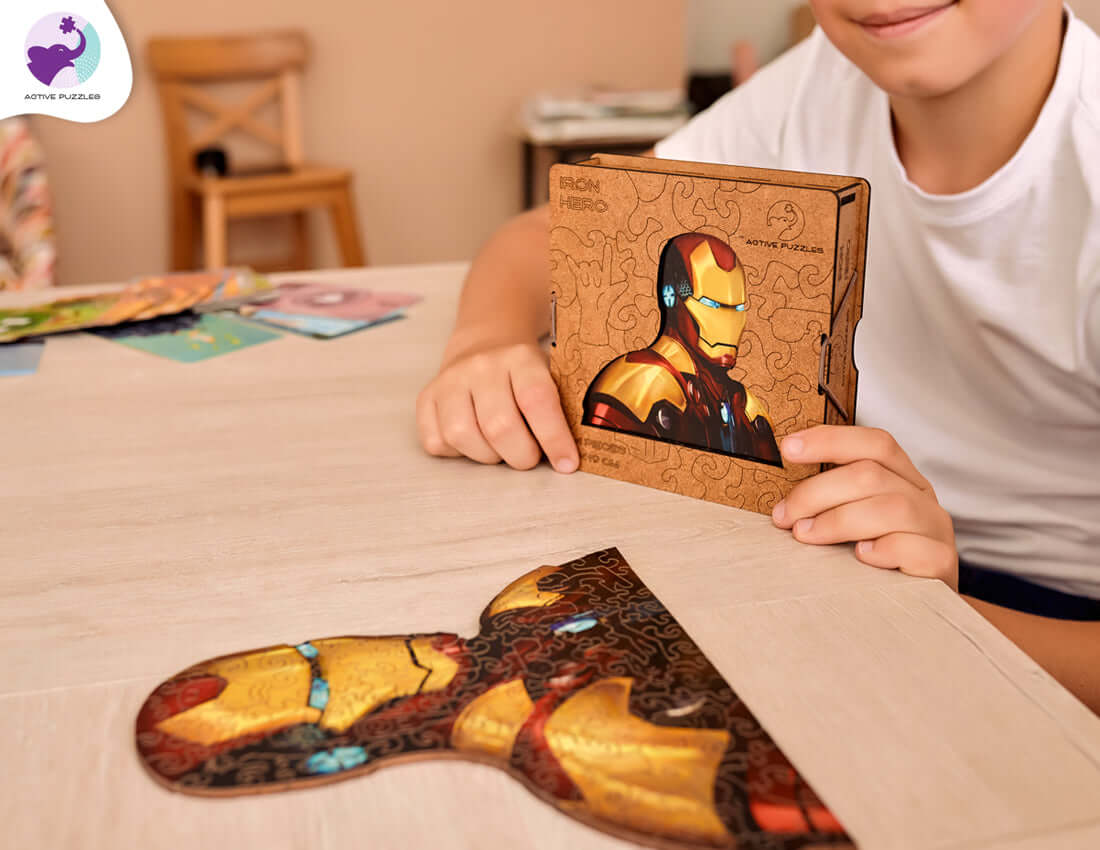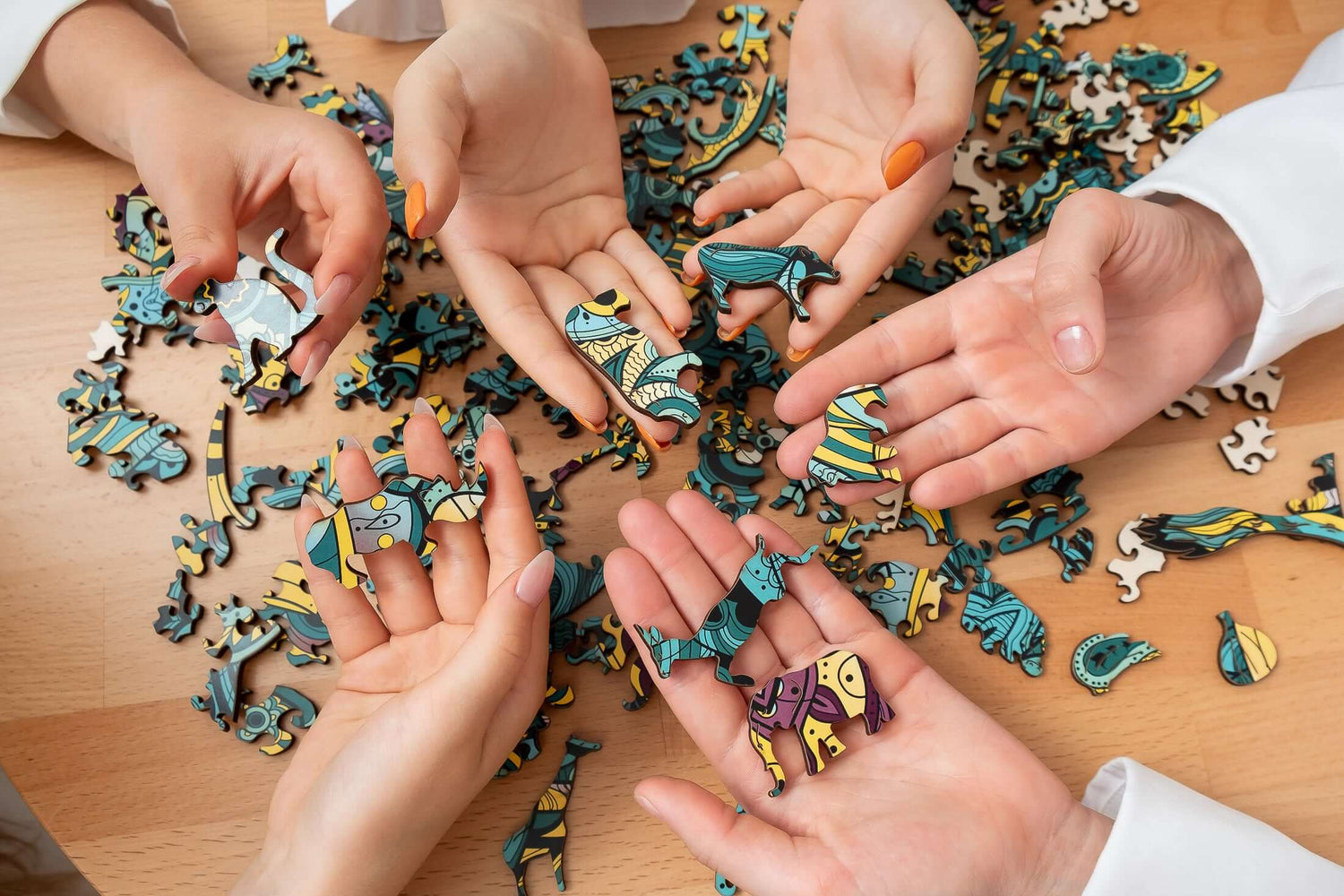
Playing puzzles & find various Ways to Become a Stress-Free
Share
Over the last two decades, computer games have radically transformed, becoming more realistic and brutal. Developers and gamers alike will benefit from this shift, but it's inaccurate to characterize games that glorify violence as "relaxing." In the same way, there is a vast range of books, a wide range of video games, and several advantages to playing games with lower levels of violence.
There's something enjoyable about solving a puzzle with others or yourself. A thousand-piece jigsaw, the New York Times Sunday crossword puzzle, a wood brain teaser, or a three-dimensional mechanical difficulty all share the same ability to stimulate thought.
Although puzzles existed long before computers, their popularity has soared in the digital age.
Since ancient times, people have enjoyed a variety of puzzles. In addition to puzzle jugs invented in Cyprus around 1700 BCE (which the Bible mentions), riddles are mentioned throughout the Bible. Around the year 700 BCE, magic squares made their debut in China.
John Spilsbury is responsible for many famous puzzles from the modern age, including the jigsaw puzzle (1767), the newspaper crossword (1913), and the Rubik's Cube (1974).
There are countless variations of puzzles, such as ironman wooden puzzles, animal puzzles, and many more. Here are the significant benefits of playing puzzle

-
They use more of your brainpower by exercising the front and side of your head
The two halves of your brain perform distinct yet interdependent functions. You can use your left hemisphere for logical, analytical thought and your right hemisphere for imaginative, original ideas. Try putting your left and right brain to work on a puzzle for a stimulating mental workout.
-
They improve memory retention
As you solve a problem, you're strengthening your brain's neuronal connections and creating new ones, essential for improving your working memory. A jigsaw puzzle can only be assembled by recalling the individual pieces' shapes, sizes, and positions from memory. Reducing brain damage in Alzheimer's patients has been linked to increased neuronal connectivity.
-
They teach you to think creatively and find practical solutions to challenges
Solving puzzles is an excellent approach to refining problem-solving and critical-thinking skills that can be applied in many different contexts. As reported by USA Today, Puzzles instruct us to learn from our mistakes, to form and test theories, and to be willing to let go of what doesn't work in favor of what might, all while remaining open to new ideas and approaches.
-
They improve one's ability to analyze visual data
Puzzles like the jigsaw and the crossword test your ability to visualize and reason the relationships between different parts and the whole. According to USA Today, regular practice will improve your eyesight and spatial awareness, making you a safer driver and, who knows, maybe even a Tetris master.
-
They lift your spirits
When you solve a puzzle, your brain produces more neurotransmitter dopamine, which positively affects your mood, memory, and ability to concentrate. Dopamine levels rise as we get closer to a resolution. Puzzles are fascinating for apparent reasons.
-
You’ll feel less pressure and stress
Besides being a relaxing diversion, puzzle solving is a fantastic mental workout. To crack the puzzle, we may need to adopt a meditative state of mind. There is an increase in optimism and resiliency in the face of stress.
For those who need a mental workout, a puzzle is an excellent choice because it encourages focus, perseverance, and critical thinking while providing a welcome diversion from whatever stresses you out.
In addition, the release of dopamine, a neurotransmitter associated with learning and memory, occurs in the brain every time a jigsaw puzzle is completed or simply a matching piece is found.
The good news for those who must endure a stressful work environment is that the same chemical has been related to positive benefits on mood, self-esteem, and resilience to stress.
-
They can help you feel more competent
It doesn't take a superhuman to figure out that brain teasers like crosswords and riddles help us retain information, concentrate, pick up new vocabulary words, and apply logic. A recent study from the University of Michigan found that people who spend at least 25 minutes per day on puzzles saw an average IQ improvement of 4 points.
Conclusion
Putting together jigsaw puzzles has been linked to improved cognitive abilities, many of which will serve you well in the workplace. Focus, memory and the ability to solve complex problems can all improve by taking a few hours out of the week to sit down and put together a jigsaw puzzle.
